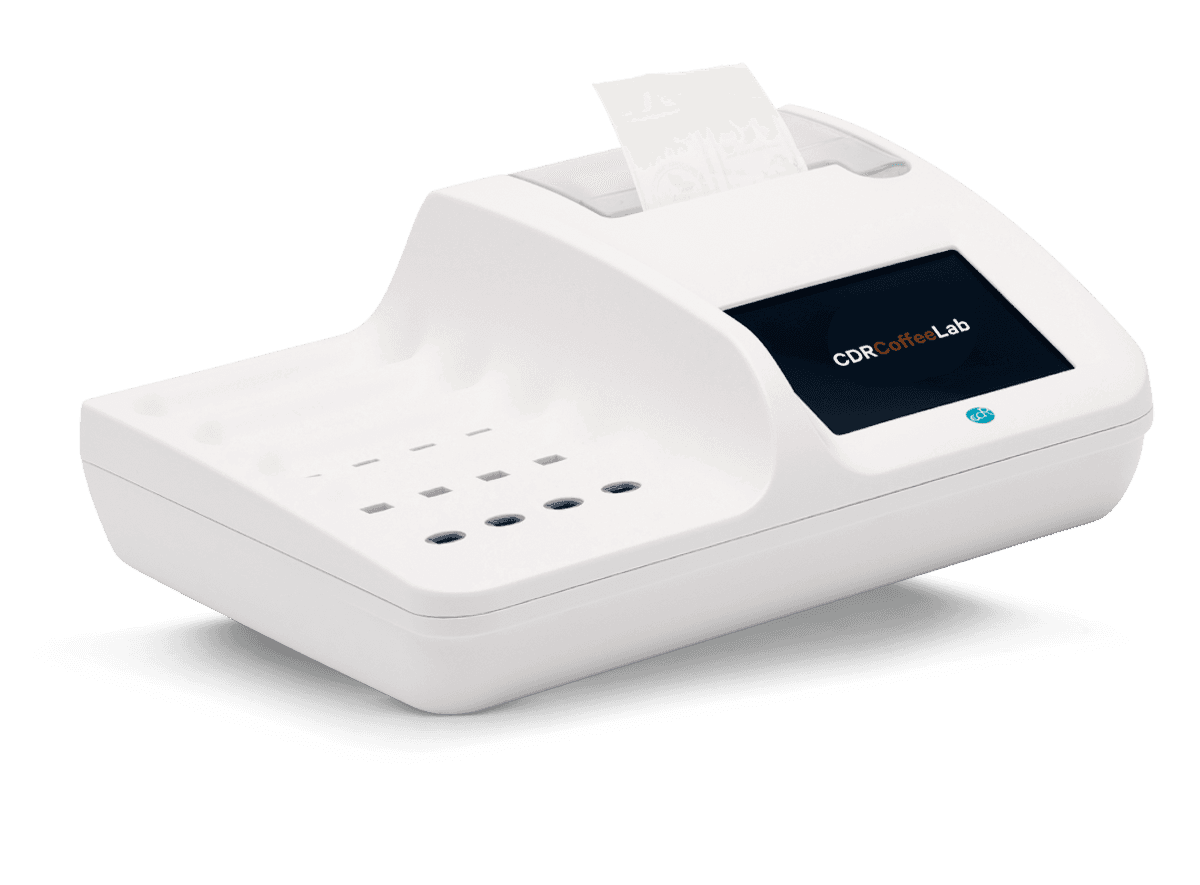Determination of lactic acid in the coffee production chain
By analyzing L-Malic acid and L-Lactic acid, it is possible to assess the correct progress of the malolactic fermentation. Lactic Acid is the product of the fermentation made primarily by microbial activity.
Analyzing Lactic Acid in Coffee: Why It Matters
The analysis of lactic acid carried out in the fermentation phase allow to control this delicate process and can be applied to the various types (natural, washed, honey, anaerobic, ...). They have the purpose of determining the right timing of the fermentation process and can give important indications to produce a coffee with the desired characteristics.
The analysis of lactic acid carried out on green coffee allow to assess the quality of the product, to evaluate its organoleptic potential and its chemical characteristics. This will allow making the right choices in the following roasting phase and evaluating its conservation over time.
The analysis of lactic acid carried out on the roasted coffee are proper to identify the chemical and organoleptic characteristics of the product and to give a first evaluation of the sensory profile that could be found in the cup. The same analysis can also be carried out on the extracted coffee in order to evaluate the efficiency of the extraction process.
Method
Test type: End Point.
Time testing: 6 minutes.
Are possible test sessions with several samples, up to 16 for CDR CoffeeLab®
Sample treatment
Fermentation: The analysis can be done on pulp or fermentation liquid. The pulp must be pureed with distilled water in the ratio 1+2 and then centrifuged (code 222061). The fermentation liquid must be centrifuged (code 222061).
Green coffee beans (without parchment) must be finely ground and sieved to obtain a homogeneous powder. Weigh 1 gram of coffee powder into a centrifuge tube and add 5 ml of distilled water. Mix for about 10 minutes and then let it settle for about 10 minutes. Take 1 ml of supernatant and add it to the tube containing the bleaching powder. Keep mixing for 10 minutes and then centrifuge for 10 minutes at 12000 rpm (code 222061).
Roasted coffee: the beans must be ground to fine grind and the powder must be as homogeneous as possible.Weigh 1 gram of coffee powder into a centrifuge tube and add 5 ml of distilled water. Mix for about 10 minutes and then centrifuge for 5 minutes at 5000 rpm. Take 1 ml of supernatant and add it to the tube containing the bleaching powder. Keep mixing for 10 minutes and then centrifuge for 10 minutes at 12000 rpm (code 222061).
Extracted coffee: Take 1 ml of sample and add it to the tube containing the bleaching powder. Keep mixing for 10 minutes and then centrifuge for 10 minutes at 12000 rpm (code 222061).
Test Principle
D-lactic acid and L-lactic acid are oxidized through an enzymatic reaction to pyruvic acid with the consequent production of NADH. The increase of absorbance, measured at 366 nm in end-point, is proportional to the lactic acid concentration of the sample. The result is expressed in ppm.
Reagent test Kits
Measuring range
| Analyses | Measuring range | Resolution | Repeatability |
|---|---|---|---|
| Lactic acid L+D | 0.15 - 3.5 g/Kg | 0.01 g/Kg | 0.07 g/Kg |
| Lactic acid L+D espresso | 0.15 - 3.5 g/L | 0.01 g/L | 0.07 g/L |
| Lactic acid L+D fermentation liquid | 0.15 - 3.5 g/L | 0.01 g/L | 0.07 g/L |
| Lactic acid L+D Pulp | 0.15 - 3.5 g/Kg | 0.01 g/Kg | 0.07 g/Kg |
CDR CoffeeLab® the analysis equipment for the world of coffee from origins to roasting
CDR CoffeeLab®
- Complete analysis panel, supplied already configured
- Up to 16 determinations simultaneously
- Possibility of carrying out analyses of the same sample
- Integrated printer
- Full connections (LAN - USB - Bluetooth barcode/QR code reader)
